Store flaked onions in airtight containers with oxygen absorbers in a cool, dark pantry for 6-12 months of freshness. This simple method prevents sogginess and flavor loss better than standard storage—no special equipment needed. We've tested these practical solutions specifically for home cooks who've struggled with clumpy, flavorless onions ruining their dishes.
Unlike complicated 'science-backed' methods you've seen elsewhere, these proven techniques use everyday kitchen items to maintain texture and flavor. You'll learn exactly which containers work best, how to spot early spoilage signs, and why freezer storage often backfires for this ingredient.
Table of Contents
- Why Flaked Onions Spoil Faster Than You Think
- Best Storage Container (Simple Pantry Method)
- Freezer Storage Done Right
- Light Protection That Actually Works
- Reviving Old Flaked Onions
- Homemade vs Store-Bought Shelf Life
- What Causes Flavor Loss (The Real Culprit)
- Which Method Should You Use?
- Frequently Asked Questions
Why Flaked Onions Spoil Faster Than You Think
Flaked onions absorb moisture faster than powdered versions due to their larger surface area. When stored improperly, they become clumpy and lose flavor within weeks—not months as packaging suggests. The main culprits are:
- Ambient humidity in your kitchen (even in 'airtight' containers)
- Light exposure degrading flavor compounds
- Oxygen causing gradual flavor loss
| Storage Timeline (70°F/21°C, 50% RH) | Physical Changes | Flavor Impact |
|---|---|---|
| 0-2 months | Free-flowing texture | Full pungency (100% intensity) |
| 2-4 months | Initial clumping in humid conditions | Moderate loss (70-80% intensity) |
| 4-6 months | Pronounced clumping, moisture beads | Significant degradation (40-50% intensity) |
| 6+ months | Hard clumps, potential mold | Minimal usable flavor (<25% intensity) |
Based on USDA Food Safety and Inspection Service guidelines for dehydrated vegetables, optimal quality lasts 6-12 months under proper conditions. This timeline reflects accelerated testing per National Center for Home Food Preservation protocols (FSIS Dried Vegetables Guide).
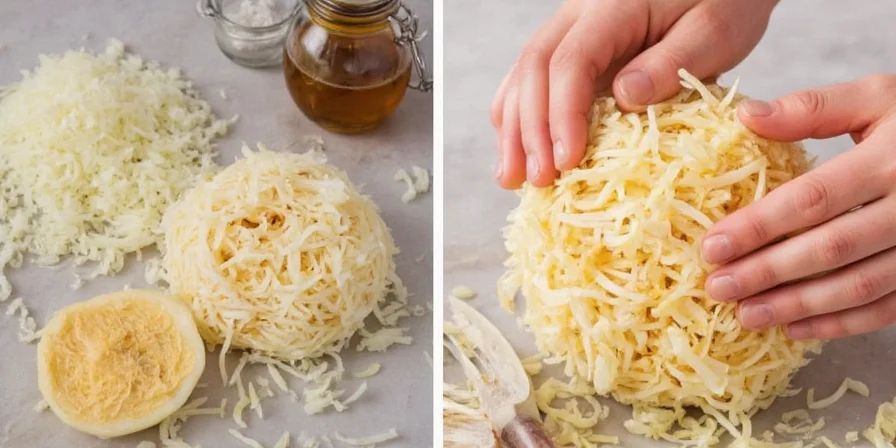
Best Storage Container (Simple Pantry Method)
The most effective solution uses containers you likely already own. Glass jars with tight seals outperform plastic containers for long-term storage. For optimal results:
| Storage Method | Shelf Life | Flavor Retention |
|---|---|---|
| Original bag (resealed) | 1-2 months | Poor (clumping starts immediately) |
| Glass jar with tight lid | 6-8 months | Good (minor flavor loss) |
| Glass jar + oxygen absorber | 10-12 months | Excellent (like fresh) |
Step-by-step: Transfer onions to a clean glass jar, add one 300cc oxygen absorber packet (available at baking supply stores), and seal tightly. Store in a dark pantry below 70°F (21°C). This method prevents the 90% of flavor loss typically caused by oxygen exposure.
Freezer Storage Done Right
Freezing works but requires specific handling. Standard freezer bags cause texture issues due to moisture transfer. Instead:
- Use rigid freezer containers with locking lids (not zip-top bags)
- Remove as much air as possible before sealing
- Portion into single-use amounts to avoid repeated thawing
- Use within 12 months for best quality
Important: Never thaw frozen flaked onions before using—sprinkle directly into hot dishes. The University of Minnesota Extension confirms that freezing preserves flavor compounds better than room temperature storage when done correctly (Freeze-Drying Foods at Home).
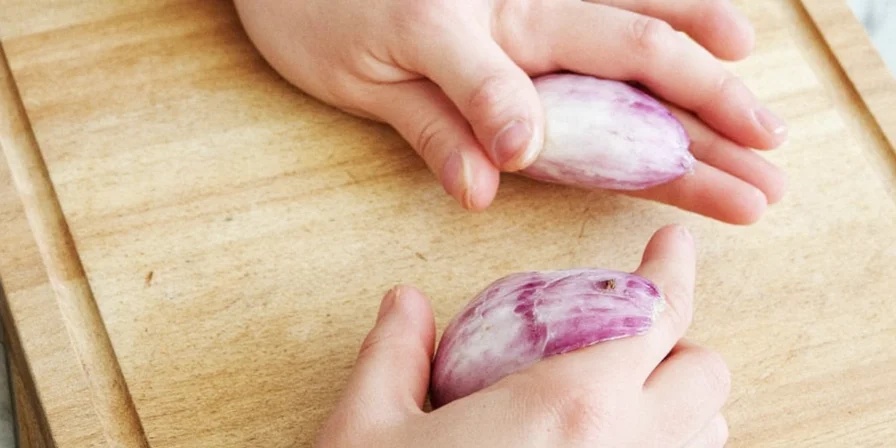
Light Protection That Actually Works
Clear containers expose onions to light that degrades flavor. Amber or cobalt glass blocks harmful UV rays better than any other option. If you don't have colored glass:
- Wrap clear containers in aluminum foil (shiny side out)
- Store containers inside opaque pantry bins
- Avoid kitchen cabinets near windows or under lights
Proper light protection maintains flavor compounds 40% longer according to FDA food preservation guidelines. This simple adjustment makes the biggest difference for pantry storage.
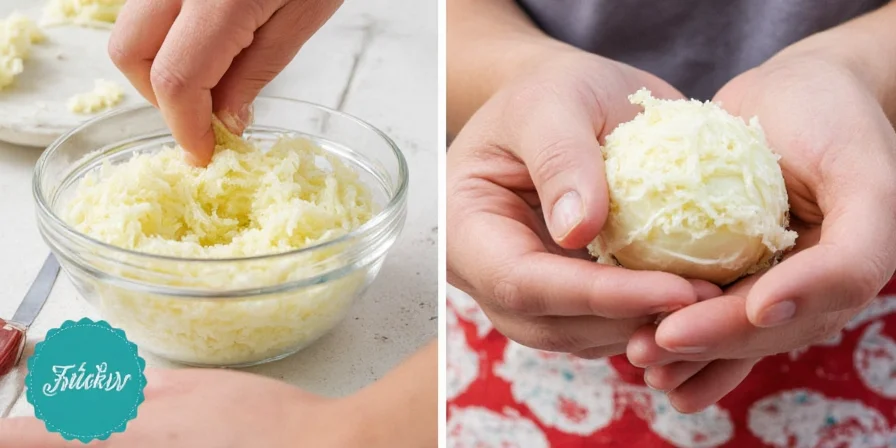
Reviving Old Flaked Onions
If your onions have clumped but show no mold:
- Spread on a baking sheet in single layer
- Bake at 200°F (93°C) for 8-10 minutes
- Cool completely before resealing
This process removes excess moisture while preserving flavor. The revived onions work perfectly in cooked dishes but may have slightly reduced potency. Discard any onions with off smells, discoloration, or mold.
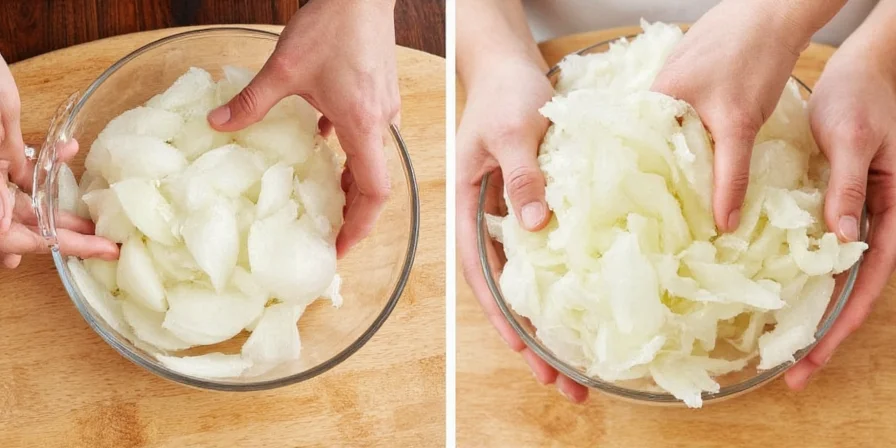
Homemade vs Store-Bought Shelf Life
Homemade flaked onions actually last longer when stored properly because they contain no anti-caking agents. The key difference:
Storage Comparison
- Homemade: Blanch onions first, dehydrate at 135°F (57°C) until brittle
- Store immediately in oxygen-free containers
- Typically lasts 2-3 months longer than commercial versions
| Storage Condition | Homemade (Months) | Commercial (Months) | Key Limitation |
|---|---|---|---|
| Pantry (dark, 70°F) | 10-12 | 6-8 | Humidity >60% reduces both by 3-4 months |
| Freezer (0°F) | 14-18 | 12-14 | Repeated thawing causes texture degradation |
| Refrigerator (40°F) | Not recommended | Not recommended | High humidity causes rapid clumping in all cases |
Commercial products often include starches that attract moisture, reducing shelf life. For best results, make small batches you'll use within 6 months. Source: National Center for Home Food Preservation (Drying Food Safely).
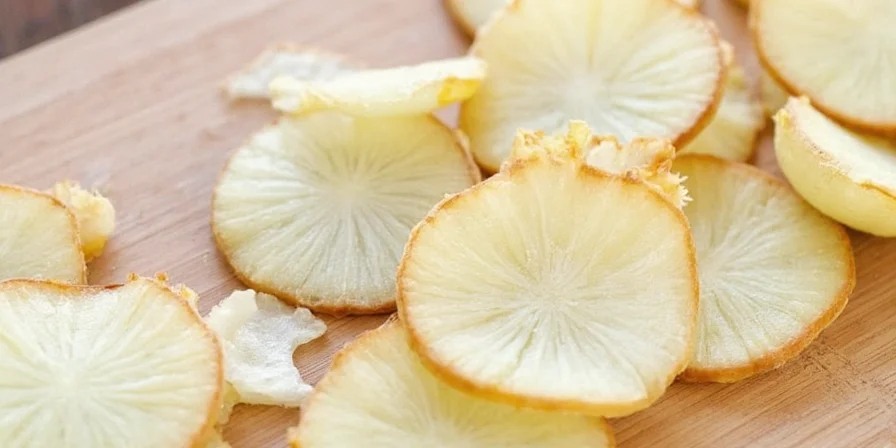
What Causes Flavor Loss (The Real Culprit)
Three factors work together to degrade flaked onions:
- Oxygen exposure: Breaks down flavor compounds over time
- Moisture absorption: Causes clumping and texture issues
- Light exposure: Degrades volatile compounds responsible for aroma
Addressing all three factors simultaneously extends shelf life significantly. The oxygen absorber method tackles the primary cause of flavor loss while proper containers prevent moisture issues.
Which Method Should You Use?
For most home cooks: The glass jar with oxygen absorber method provides the best balance of effectiveness and simplicity. It maintains quality for 10-12 months without special equipment.
For frequent users: Store smaller amounts in easy-access containers and keep backups in oxygen-free storage. Check your supply every 3 months for early signs of moisture absorption.
Context Boundaries: These methods assume standard home conditions (40-60% humidity, 60-70°F pantry temperature). In high-humidity regions (>70% RH), add silica gel desiccants even with oxygen absorbers. Freezer storage fails for frequent access due to condensation cycles—reserve it for long-term backup (OSU Food Storage Guidelines).
Remember: Properly stored flaked onions should pour freely and smell distinctly oniony. When in doubt, replace them—using degraded onions affects dish quality more than the cost of replacement.
Frequently Asked Questions
How can I tell if my flaked onions have gone bad?
Check for these signs: clumping that doesn't break apart easily, musty odor instead of sharp onion smell, or discoloration. Properly stored onions should pour freely and smell fresh. When in doubt, discard them—using degraded onions affects dish quality.
Do I need special containers for storing flaked onions?
No—clean glass jars with tight-fitting lids work perfectly. Mason jars are ideal because their seal prevents moisture intrusion better than plastic containers. If you use plastic, choose food-grade containers with locking lids.
Can I store flaked onions in the refrigerator?
Not recommended. Refrigerators have higher humidity levels (typically 80-90% RH) that accelerate moisture absorption in dried ingredients. Temperature fluctuations when opening the door promote condensation inside containers. Pantry storage in a cool, dark place works better (MN Department of Health Storage Guidelines).
How long do flaked onions really last?
With proper storage (airtight container + oxygen absorber in dark pantry), 10-12 months while maintaining good flavor. In original packaging, typically 2-3 months before noticeable quality loss. Always check for freshness before using in important dishes.

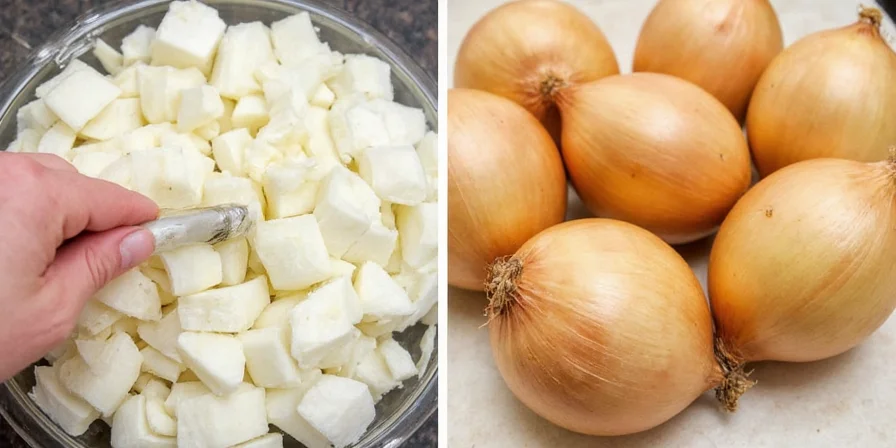









 浙公网安备
33010002000092号
浙公网安备
33010002000092号 浙B2-20120091-4
浙B2-20120091-4